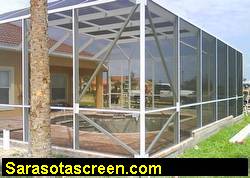(NewsUSA) - In August 2008, Hurricane Gustav forced 2 million Gulf Coast residents from their homes. And while the storm lost force before landing, it did threaten homes and New Orleans' still-unfinished levees.
Precast Concrete Walls - 03:16 min.
The focus on New Orleans, just three years after Hurricane Katrina devastated the city, should remind Americans to prepare their towns for natural disasters. Natural disasters are on the rise, and while politicians put more police on the streets to stop crime, few see rewards in enhanced disaster preparedness. According to one study published by researchers from Loyola Marymount University and the Stanford Graduate School of Business, constituents value politicians who respond to natural disasters, not those who spend money building safer infrastructures.
But when a hurricane or earthquake strikes, a capable infrastructure can save more lives than any emergency-response team. Well-built roads and buildings make evacuations and rescues easier and more effective. Building to resist hurricane-force winds, earthquakes and floods can help communities avoid billions of dollars in damages.
Builders can elevate buildings in flood plains and add basements or even storm shelters to homes in tornado-prone areas, giving residents a safe place to avoid storms. Roofs can be anchored to buildings' foundations, preventing high winds from removing rooftops during storms.
Some states have recognized that homes should be built to stand against the elements. In Florida, the building code is written to protect homes against 100-mph winds. And what materials do Floridian builders use to build strong homes? Eighty-five percent of the single-family homes built in Florida are made from concrete masonry.
Concrete masonry buildings resist decay, fungus, moisture, mildew, fire and hurricane-strength winds, helping to protect communities from structural damage caused by natural disasters.
For more information, contact the National Concrete Masonry Association at www.ncma.org
Tags:
concrete masonry
Subscribe to:
Post Comments (Atom)





.jpg)
.jpg)
.jpg)

.jpg)
No comments:
Post a Comment